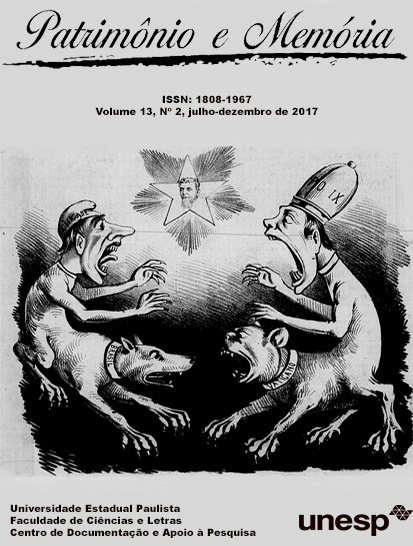A memória do tradicional haicai japonês e a crítica e a estética contemporâneas
DOI:
https://doi.org/10.5016/pem.v13i2.3435Palabras clave:
Haicai tradicional japonês, Bashô, Crítica e estética contemporâneaResumen
O artigo investiga como demandas por pluralidade, simultaneidade e nãolinearidade, próprias da estética contemporânea, podem habitar nas formas do haicai e, paradoxalmente, como o haicai, com suas características peculiares de composição, rivaliza
com tais demandas do mundo atual para as artes. O estudo ilustra as análises críticas a respeito da modalidade literária haicai por Roland Barthes, Alberto Marsicano, Rodolfo Wilzig Guttilla, Paulo Franchetti, Elza Taeko Doi e Regina Weinreich. Buscam-se
correlações e oposições entre os clássicos japoneses, como Bashô, Buson, Issa e Shiki, e os praticantes mais contemporâneos dessa arte, como Waldomiro Siqueira Júnior (no cenário nacional) ou ainda Jack Kerouac (no cenário internacional).
Citas
BARTHES, Roland. A preparação do romance I: da vida à obra. São Paulo: Martins Fontes, 2005.
BASHÔ, Matsuó. Trilha estreita ao confim. São Paulo: Iluminuras, 2008.
BENJAMIN, Walter. Obras escolhidas v.1: magia e técnica, arte e política: ensaios sobre literatura e história da cultura. São Paulo: Ed. Brasiliense, 1985.
FRANCHETTI, Paulo; DOI, Elza Taeko (Org.). Haikai: antologia e história. Campinas, SP: Editora da Unicamp, 2012.
GUTTILLA, Rodolfo Witzig (Org.). Boa companhia: haicais. São Paulo: Companhia das Letras, 2009.
KEROUAC, Jack. Livro de haicais. Porto Alegre, RS: L&PM, 2013.
PERRONE-MOISÉS, Leyla. Fernando Pessoa, aquém do eu, além do outro. São Paulo: Martins Fontes, 2011.
Descargas
Publicado
Cómo citar
Número
Sección
Licencia
Derechos de autor 2017 Patrimônio e Memória

Esta obra está bajo una licencia internacional Creative Commons Atribución 4.0.
Todo el contenido de la revista, salvo que se indique lo contrario, está sujeto a una licencia de atribución Creative Commons BY.


